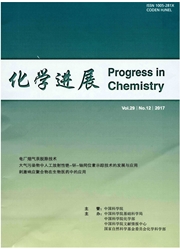

 中文摘要:
中文摘要:
相对于传统的水热合成法,干胶法(drygelconversion,DGC)合成分子筛具有产量高、废液量少等优势。本文综述了近十年来DGC合成分子筛的研究进展。以水为线索,总结了外加水和固有水(指原料干胶所含的水)在DGC中对分子筛的生长、晶相的转换与物化性质的影响,论述了在DGC条件下分子筛的生长过程和晶化机理,介绍了DGC在介孔一微孔复合分子筛、分子筛膜、单块材料等新型分子筛材料合成中的一些实例。
 英文摘要:
英文摘要:
Compared with traditional hydrothermal synthesis (HTS), dry gel conversion (DGC) synthesis of zeolites has the advantages of high yield, less waste, less usage of templates,etc. Firstly, this review summarized the developments in last decade and pivoted on the role of water. In typical DGC synthesis, the gel powder keeps intact with the liquid including liquid water. However, water could also be the vapor or those adsorbed/absorbed in gel powders. Therefore, both the water added and those included in gel powder may affect the nucleation, and growth of zeolite, phase selectivity and transformation, and the properties of obtained zeolite. It is believed that water has been the prerequisite for the transformation of zeolite from initial gel. And the required amount of water differs by structural properties of zeolite. Apart from water, other factors have been seen as contributing roles as well in the synthesis condition. Secondly, the difference between HTS and DGC is discussed. Thirdly, this review provided some insights into the formation mechanism of zeolite in DGC process, where nanoparticles and semi- crystalline intermediates play the role. Finally, this review illustrated the applications of DGC in the synthesis of hierarchical zeolite, zeolite film, zeolite monolith and others. Some advices about DGC used in the synthesis of these relatively new materials are concluded.
 同期刊论文项目
同期刊论文项目
 同项目期刊论文
同项目期刊论文
 期刊信息
期刊信息
